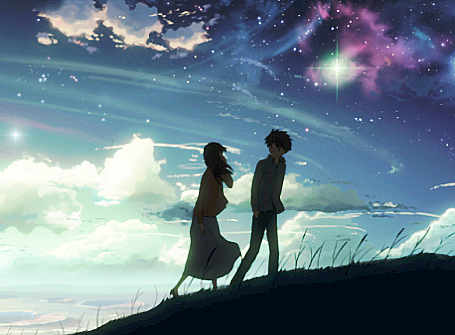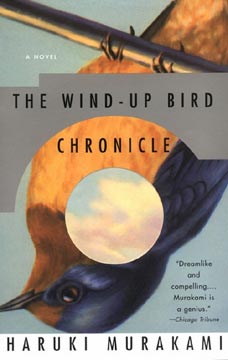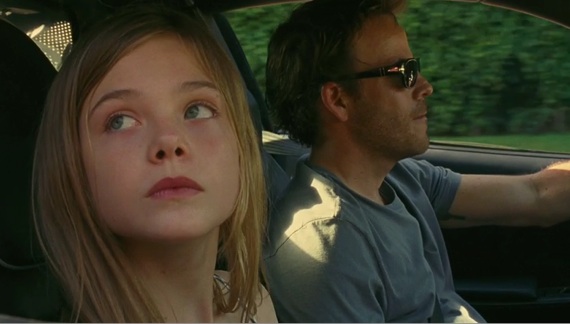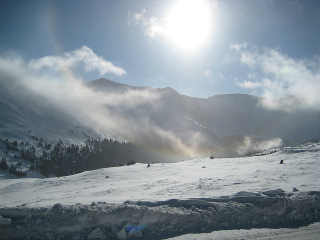

Quick Links:
The Folly of Sentiment, or Lack Thereof
One of the blessings of age, or one might say curse, is the benefit of hindsight. Whether we look through rose colored glasses or a veil of cynicism, the truth is out there, wanting to be remembered as best we can. Like many truths, the truths of life come unexpected and disappear as quickly, just as Kenji Miyazawa must have felt, portrayed in the film Spring and Chaos, where he furiously scribbled out a poem in front of his students, only to surrender the ending that could have been his to the river and stones below. Inspiration is inextricably tied to sentiment. Both come and go as they please.
Many fans are familiar with Makoto Shinkai, who unsurprisingly borrows inspiration from Miyazawa — but as Miyazawa described the hardships of poor farmers in northern Japan, Shinkai muses on the distance between a man and a woman — the couple on the dance floor of that old high-school gym, and Hall and Oats put it. It's comforting in a way to express the relationship that never happened but could have been wondrous to be as sailing the cosmos as evidence of human presence, or one of a million other equally lonely metaphors. The fates who have absolute control over the times of our lives but not their own; the astronaut who longs for the freedom of walking in space but who is dying from the radiation exposure, thinking of nothing but the girl he left behind; the couple light years apart, bound to the physics of their distance yet determined to communicate; the adolescent girl from Hiroshima who never got a chance to love and live. Much is made of how young people lack the capacity to appreciate past events and the scope of things, but I think part of that is an insecurity about our adult mind's capacity for the same. Sentiment strikes at the tide's ebb, the time that Haruki Murakami describes as a dried well preparing to flow again, drowning our senses in the process. Each of us is the obstruction that the current fails to push to the surface. We are the rock that bound Aron Ralston to an early grave in the canyons of Utah, only to take his arm, because he wasn't ready to surrender himself. But that current reminds us that we are still alive — that our lives are still capable of sensing motion, even as we may lie motionless. Shinkai's brand of sentiment isn't the only one possible, however. While memories of the past can universally cause pain, they don't always accompany regret. In The Boat that Rocked (aka Pirate Radio), the one American on the crew, in ironic appreciation of the freedom he's experienced off British shores, laments: "These are the best days of our lives. It's a terrible thing to know, but i know it." The movie is a testament to those fleeting moments I hope we all feel — those where God is in His Heaven and all is right with the world. Where one experiencing it can't imagine feeling more — his cup runneth over. As we age, these moments seem to happen less frequently, and seem less likely to occur again. The pain of knowing that the fullest of life is behind you can be unbearable. Many of us feel uncomfortable at the notion that the best times of our lives are behind us, while maintaining an ironclad belief that it's true. After all, who can predict the next event that might roust us from our laurels and make us feel alive again? In Sofia Coppola's Somewhere, we meet a father who has everything he could have wanted out of life, but his daughter's unspoiled love forces him to see the folly of his ways. In Yumi Unita's Bunny Drop, thirty year-old Daikichi reluctantly takes on six year-old Rin, his Grandfather's daughter, out of disgust with his family's treatment of her. His experiences afterward include hardship, but he maintains an ironclad belief that he did right by taking her in. I think many thirty year-old singles seek a similar affirmation, regardless of the freedom and excitement of single life. On the next "Shinkai Day," I'd like to see people celebrating something other than their regrets. Regret plays like a broken record after a short time — there are only so many ways a person can say, "My life is made up of failures," and they're probably lying, anyway. Tonight, I might lament the fact that I'm not enjoying a cigar from Cuba, which is a strong man's stone's throw from the Southern tip of Florida, but may as well be a world away. Tonight, I might think about how my high-school or college crushes are overflowing in their kids' love, or how my friends seem to have left me behind in everything that seems important in life. But I've had precious experiences as well. I've hiked through the Colorado National Monument, a mere Herculean holler from Raulston's would-be grave, and found it a beautiful and special experience. I've stood atop several Colorado mountains, drank from crystal streams, felt the sting of winter's winds and on the same day, basked in the sunlight on snowy slopes. I've seen all manner of wild creatures above ground and below the ocean's surface. I jumped off a cliff into Jamaica's crystal clear waters, and drank the finest beers in Germany's monasteries and biergartens. I've touched the remnants of the Berlin Wall, and walked over the same stones that Sophia and Hans Scholl did in their quest to free German minds from Hitler's corruption.But like a Hemingway lead, there is so much left undiscovered, and my heart feels the loss of what was, and what might be. All the snows of Kilimanjaro can't cover the longing.







